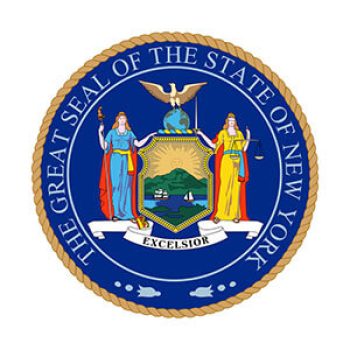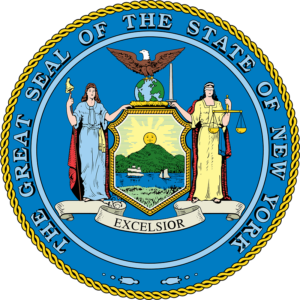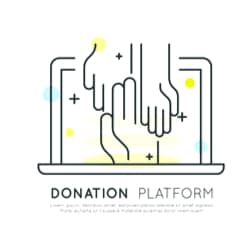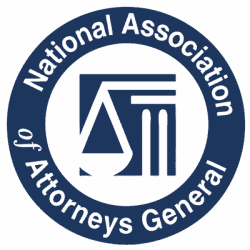New York law provides a streamlined way for nonprofit organizations holding donor-restricted institutional funds to modify or lift those restrictions on “small” and “old” funds.
Basic Legal Principles
The New York Prudent Management of Institutional Funds Act (“NYPMIFA”), the New York version of UPMIFA, took effect on September 17, 2010. That law made important changes to rules governing the spending of institutional funds and replaced key provisions of the prior statute known as the Uniform Management of Institutional Funds Act (“UMIFA”). The new law was passed after the 2008-2009 financial crisis, a very difficult period for charities administering institutional funds, and gave nonprofit boards broader authority to spend donor-restricted institutional funds while establishing provisions to ensure that boards exercise their authority responsibly.
Significantly, NYPMIFA made a few changes to the rules governing the modification or release of donor-imposed restrictions on institutional funds. These changes are summarized in the guidance provided on the website of the Office of the New York Attorney General (the “Attorney General”), entitled A Practical Guide to The New York Prudent Management of Institutional Funds Act. In this article we focus on a new procedure created by NYPMIFA for lifting or modifying a donor-imposed restriction on the management, investment, or purpose of an institutional fund without donor or court approval when the institutional fund is less than $100,000 in value and has been in existence for more than 20 years.
Below I outline the steps for releasing or modifying donor-restricted institutional funds that are under $100,000 and older than 20 years, as outlined in section 555(d) of the Not-for-Profit Corporation Law (N-PCL). In brief, if the institution determines that the restriction is unlawful, impracticable, impossible to achieve, or wasteful, the institution may release or modify the restriction, in whole or part, without court approval, after giving written notice to the Attorney General, unless the Attorney General objects to the release or modification within 90 days. It is the view of the Attorney General that such notice must also be given to the donor if available. The organization may proceed to release or modify the restriction if the Attorney General does not notify the institution within 90 days, or if the Attorney General provides its consent.
Step 1. Identify Eligible “Small and Old Funds”
The institution should identify any donor-restricted institutional funds that are currently less than $100,000 in value and more than 20 years have elapsed since the fund was established. The institution should locate the original gift instrument and any other supporting document that indicates the fund’s age and value.
Step 2. Determine Whether to Seek Modification/Release
Once the eligible small and old funds are identified, the institution should determine whether the restrictions on any or all of those funds are unlawful, impracticable, impossible to achieve, or wasteful, such as to warrant release or modification of the restrictions in whole or in part. This determination should be made in a careful and prudent manner by the institution’s board in the exercise of its reasonable business judgment, and documented in appropriate detail in the minutes of the board meeting where the decision was made.
Step 3. Notify Donors
Once the institution has determined which of the applicable small and old funds warrant release or modification, the institution must contact the original donor, if available, and try to obtain consent to the modification. A donor who is an individual is “available” if the donor is living and can be identified and located with reasonable efforts. There is no requirement to contact an executor or heir of the donor of the fund. If a donor’s current address is unknown, the institution should make reasonable efforts to locate the donor, including Internet searches and contacting known associates of the donor, such as an attorney who represented the donor when the gift was made. The institution should keep a record of its statutory notice to donors and should document the institution’s efforts to locate donors, even if those efforts are unsuccessful. If donor consent is received, the institution can proceed with its intentions without any further action.
Step 4. Notify the New York Attorney General
If the original donor cannot be reached or does not consent to the proposed modification, the institution must notify the New York Attorney General of the institution’s intent to modify or release the donor restrictions from the institutional funds.
The notice to the Attorney General must contain the following.
- An explanation of the institution’s determination that the restriction is unlawful, impracticable, impossible to achieve, or wasteful.
- An explanation of the proposed release or modification.
- A copy of a record of the institution approving the release or modification.
- A statement of the proposed use of the institutional fund after such release or modification.
The notice to the Attorney General must be submitted with the following supporting documents.
- A copy of the gift instrument and other documentary evidence sufficient to show that the fund’s total value is less than $100,000 and that more than 20 years have elapsed since the fund was established.
- If the donor is available, and particularly if the donor has withheld consent, a copy of any correspondence between the institution and the donor regarding the proposed release or modification.
The notice must also be given to the original donor, if available. The Attorney General has 90 days to review the notification and object to the release or modification. If the Attorney General does not respond within 90 days, or if the Attorney General responds favorably, then the modification or release is deemed approved.
Given the many specific requirements that must be met to obtain approval for the release or modification of small and old funds, institutions should consider consulting with legal counsel to ensure compliance with the required process.
- Benjamin Perlmanhttps://perlmanandperlman.com/author/benjamin/
- Benjamin Perlmanhttps://perlmanandperlman.com/author/benjamin/
- Benjamin Perlmanhttps://perlmanandperlman.com/author/benjamin/
- Benjamin Perlmanhttps://perlmanandperlman.com/author/benjamin/
















